Want to be a successful landlord? Discover the top 5 tips for managing rental property like a pro. Don’t miss out!
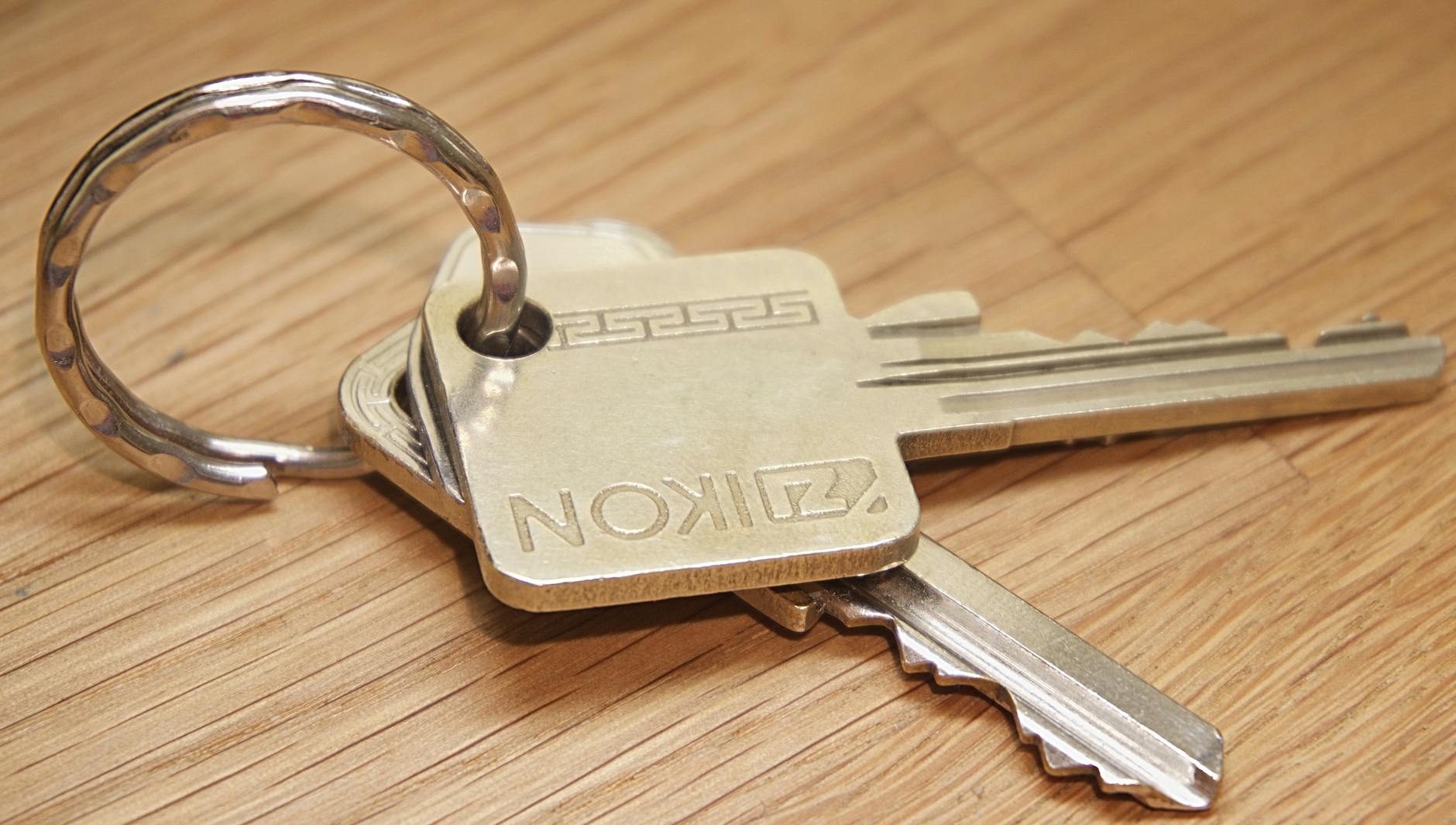
Image courtesy of Ingo Joseph via Pexels
Table of Contents
- Introduction to Rental Property Management
- Tip #1: Understanding Your Responsibilities
- Choosing the Right Tenants
- Effective Communication Skills
- Financial Organization
- Regular Property Inspections
- Making Use of Technology
- Dealing with Challenges
- Learning from Experience
- Conclusion: Becoming a Pro at Managing Rental Property
- FAQs Section
Introduction to Rental Property Management
Managing a rental property is essential for ensuring that everything runs smoothly and both the landlord and the tenants are happy. Successful property management can make a big difference in how well a property operates and how satisfied everyone involved is with the living situation. It involves taking care of various tasks to keep the property in good condition and to address any issues that may arise.
Learning how to manage a rental property effectively is crucial for property managers to maintain a positive relationship with tenants, handle maintenance needs promptly, and keep the finances in order. By following some key strategies and tips, property managers can make the process of renting out properties a success.
Tip #1: Understanding Your Responsibilities
As a property manager, it is essential to understand and comply with the laws and regulations surrounding rental properties in your area. This includes knowing the rules for renting out a property, as well as the responsibilities you have towards your tenants. By familiarizing yourself with the legal requirements, you can avoid potential conflicts and operate your rental property successfully.
Maintenance Matters
Maintaining your rental property is crucial for keeping your tenants happy and ensuring the longevity of your investment. Regular maintenance not only enhances the overall appeal of the property but also prevents costly repairs down the line. By staying proactive with upkeep and addressing any issues promptly, you can create a safe and comfortable living environment for your tenants while preserving the value of your property.
Choosing the Right Tenants
When it comes to managing a rental property, one of the most crucial steps is selecting the right tenants. By carefully screening potential renters, you can help ensure a smooth and successful renting experience for both you and your tenants. Here are some tips on how to choose the right tenants:
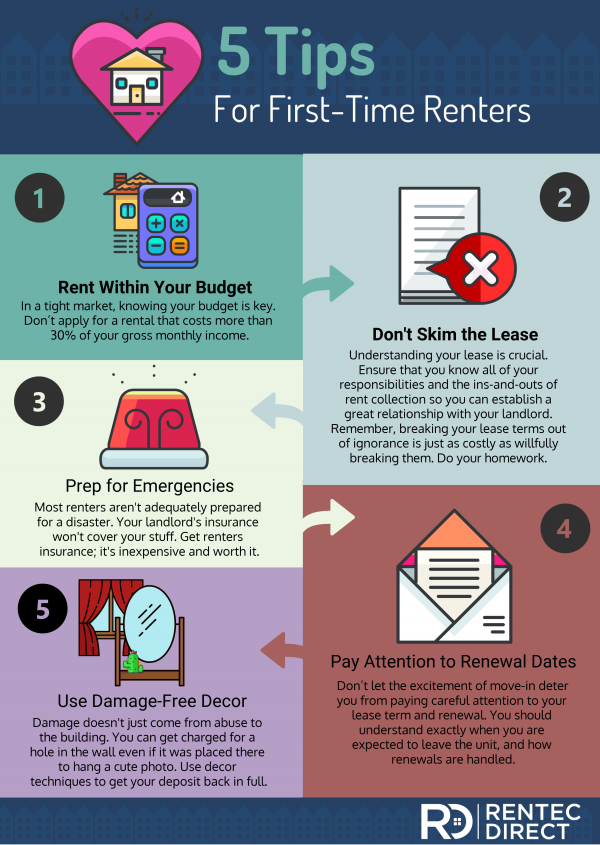
Image courtesy of www.rentecdirect.com via Google Images
Screening Process
Before welcoming a new tenant into your rental property, it’s essential to conduct a thorough screening process. This typically involves checking their credit history, rental history, and income level. By doing so, you can better assess their ability to pay rent on time and take care of the property. Additionally, consider requesting references from previous landlords to get an idea of how they have behaved as tenants in the past.
Building Relationships
Building a positive relationship with your tenants can go a long way in ensuring a harmonious rental experience. Communication is key – make sure to be approachable and responsive to any concerns or questions they may have. Showing respect and understanding can help foster a sense of trust and respect between you and your tenants. By maintaining a good relationship, you are more likely to have a cooperative and responsible tenant who will take care of your property.
Effective Communication Skills
One key aspect of successful property management is being available to your tenants. When tenants have questions, concerns, or issues with the property, they should feel comfortable reaching out to you. By maintaining open lines of communication, you can address problems promptly and prevent small issues from escalating into larger ones.
Setting Expectations
Clear communication is essential for setting expectations with your tenants. From the start, outline your rules, policies, and expectations regarding rent payments, maintenance responsibilities, and house rules. By establishing clear guidelines, you can avoid misunderstandings and ensure that everyone is on the same page.
Financial Organization
It’s essential to stay financially organized when managing a rental property to ensure smooth operations and profitability. Let’s take a look at some strategies to keep your finances in order.
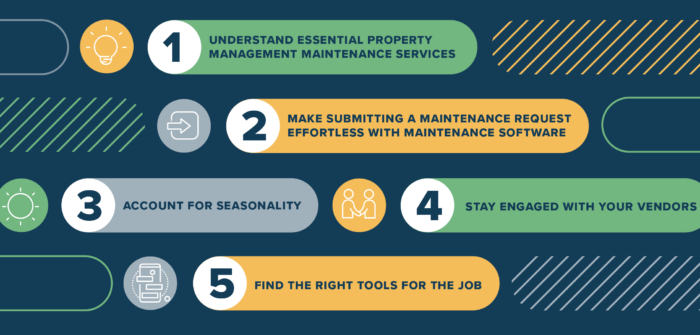
Image courtesy of www.buildium.com via Google Images
Keeping Records
One of the most crucial aspects of financial organization is maintaining detailed records of all income and expenses related to your rental property. This includes rent payments, maintenance costs, repairs, and any other transactions. By keeping accurate records, you can track the financial health of your property and make informed decisions.
Planning for Expenses
Another important aspect of financial organization is budgeting for expenses. It’s essential to anticipate both expected and unexpected costs associated with your property, such as routine maintenance, repairs, property taxes, and insurance. By planning ahead and setting aside funds for these expenses, you can avoid financial surprises and ensure the long-term viability of your rental property.
Regular Property Inspections
As a property manager, regular property inspections are a key strategy in successful property management. Inspections help ensure that your rental property is being well-maintained and that any issues are addressed promptly. Let’s explore why property inspections are essential and how they can benefit you as a property manager.
Scheduling Inspections
It’s important to schedule regular property inspections to assess the condition of your rental units. Depending on your property type and local regulations, inspections can be conducted quarterly, semi-annually, or annually. During these inspections, you should check for any maintenance issues, safety hazards, or lease violations that need attention. By staying on top of inspections, you can catch potential problems early and prevent them from escalating into major issues.
Addressing Issues Promptly
Once you identify any issues during a property inspection, it’s crucial to address them promptly. Whether it’s a leaky faucet, a malfunctioning appliance, or a repair needed for safety reasons, timely action is key. Ignoring or delaying repairs can lead to tenant dissatisfaction, further property damage, and even potential legal issues. By fixing issues promptly, you demonstrate your commitment to maintaining a safe and habitable living environment for your tenants.
| Tips | Description |
|---|---|
| 1. Screen Tenants Carefully | Perform thorough background and credit checks to ensure reliable tenants. |
| 2. Set Clear Expectations | Outline rental policies, rules, and responsibilities in a lease agreement. |
| 3. Regular Property Inspections | Conduct routine inspections to identify maintenance issues early. |
| 4. Maintain Open Communication | Respond promptly to tenant inquiries and address concerns promptly. |
| 5. Stay Organized with Records | Keep detailed records of rent payments, maintenance requests, and agreements. |
Making Use of Technology
Technology can be a game-changer when it comes to managing rental properties efficiently. By leveraging the right tools, property managers can streamline their processes and stay on top of everything happening with their properties.
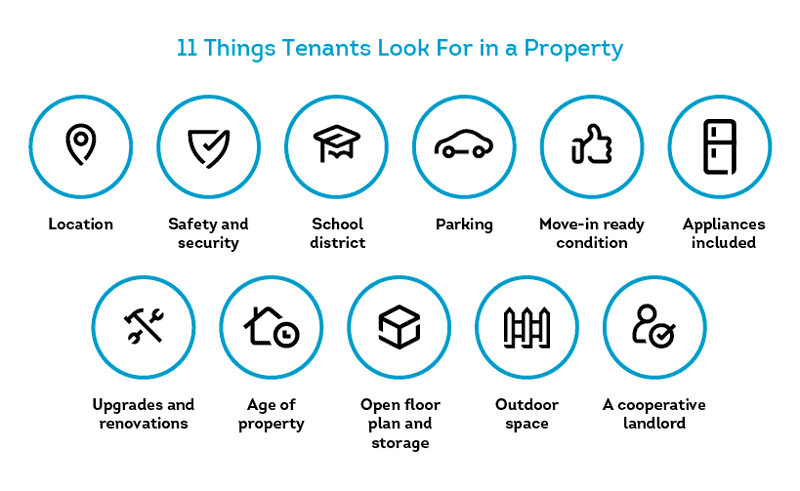
Image courtesy of www.mysmartmove.com via Google Images
Property Management Software
One of the most valuable technological advances for property managers is property management software. This software allows managers to keep track of rent payments, maintenance requests, lease agreements, and much more all in one convenient place.
With property management software, tasks like collecting rent, sending notices to tenants, and generating financial reports become much simpler and more organized. It can even help automate certain aspects of your property management, saving you time and reducing the chances of human error.
By utilizing property management software, property managers can increase their efficiency, improve tenant satisfaction, and ultimately achieve successful property management with less hassle.
Dealing with Challenges
Managing a rental property can come with its fair share of challenges, but with the right strategies, you can navigate through them smoothly. Here are some tips on how to handle common issues that property managers encounter:
Conflict Resolution
One of the key skills for any property manager is the ability to resolve conflicts effectively. Whether it’s disputes between tenants or disagreements between tenants and the manager, being able to address and resolve conflicts in a fair and timely manner is crucial. Here are some strategies to help you navigate through challenging situations:
–
Stay Neutral: When dealing with conflicts, it’s essential to remain neutral and not take sides. Listen to all parties involved and try to understand their perspectives before coming to a resolution.
–
Communicate Clearly: Clear and open communication is key to resolving conflicts. Make sure all parties understand the issue at hand and work together to find a solution that is fair to everyone involved.
–
Find Common Ground: Look for areas of agreement and common interests among the parties involved in the conflict. Finding common ground can help build a foundation for resolution and understanding.
By practicing effective conflict resolution strategies, you can create a harmonious environment for both your tenants and yourself as a property manager.
Learning from Experience
In the world of managing rental properties, experience is one of your best teachers. When you make mistakes or encounter challenges, instead of getting discouraged, look at them as opportunities to learn and grow. Here are some tips on how to make the most of your experiences in property management.
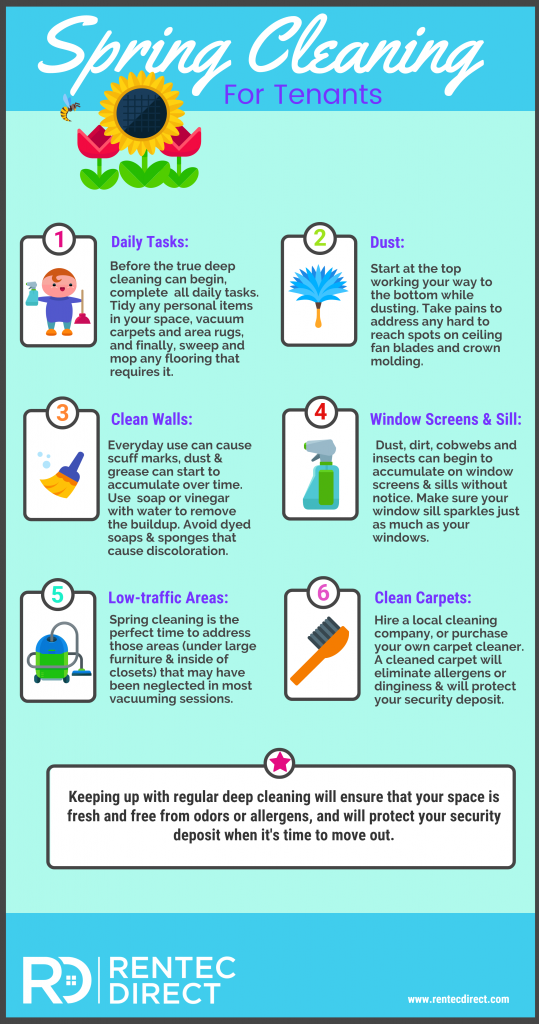
Image courtesy of www.rentecdirect.com via Google Images
Continual Improvement
One of the most important things you can do as a property manager is to continually seek ways to improve your skills. Reflect on past experiences and identify areas where you could have handled things better. Maybe a tenant communication could have been clearer, or you could have better anticipated a maintenance issue. By acknowledging these shortcomings and learning from them, you can become a more effective and successful property manager.
Conclusion: Becoming a Pro at Managing Rental Property
Managing rental property may seem like a daunting task, but with the right guidance and strategies, you can become a pro at it in no time. By implementing the top tips provided in this article and staying proactive in your approach, you can ensure smooth and successful property management.
Understanding your responsibilities as a property manager, choosing the right tenants, communicating effectively, staying financially organized, and conducting regular property inspections are key aspects of successful property management. By mastering these areas and continually seeking ways to improve your skills, you can navigate the rental property landscape with confidence.
Remember, managing rental property is a dynamic process that requires patience, flexibility, and a willingness to learn from both successes and setbacks. By maintaining a positive attitude and staying committed to providing a safe and comfortable living environment for your tenants, you can establish yourself as a knowledgeable and reliable property manager.
FAQs Section
As a property manager, you may have a lot of questions about managing rental properties. Here are some common FAQs answered to help you navigate the world of property management more smoothly.
How often should I do property inspections?
It is recommended to conduct property inspections at least once every six months to ensure everything is in good shape and address any issues promptly. Regular inspections can help you catch potential problems before they escalate and keep your property well-maintained.
What’s the best way to communicate with tenants?
Open and clear communication is key to successful property management. You can communicate with tenants through various channels such as email, phone calls, text messages, or even in-person meetings. Make sure to set expectations early on and be available to address any concerns or questions they may have promptly.
How can I handle late rent payments effectively?
Handling late rent payments can be challenging, but it’s important to have a clear policy in place from the start. You can consider sending reminders, implementing late fees, or offering payment plans for tenants facing financial difficulties. Consistency and communication are essential in dealing with late payments to maintain a good relationship with your tenants while ensuring your income is secure.
Idaho Poperty Management
